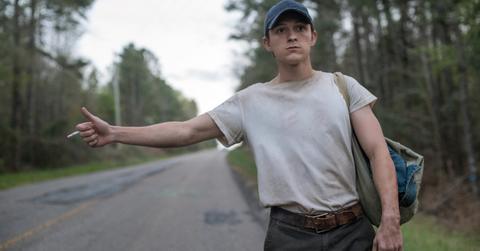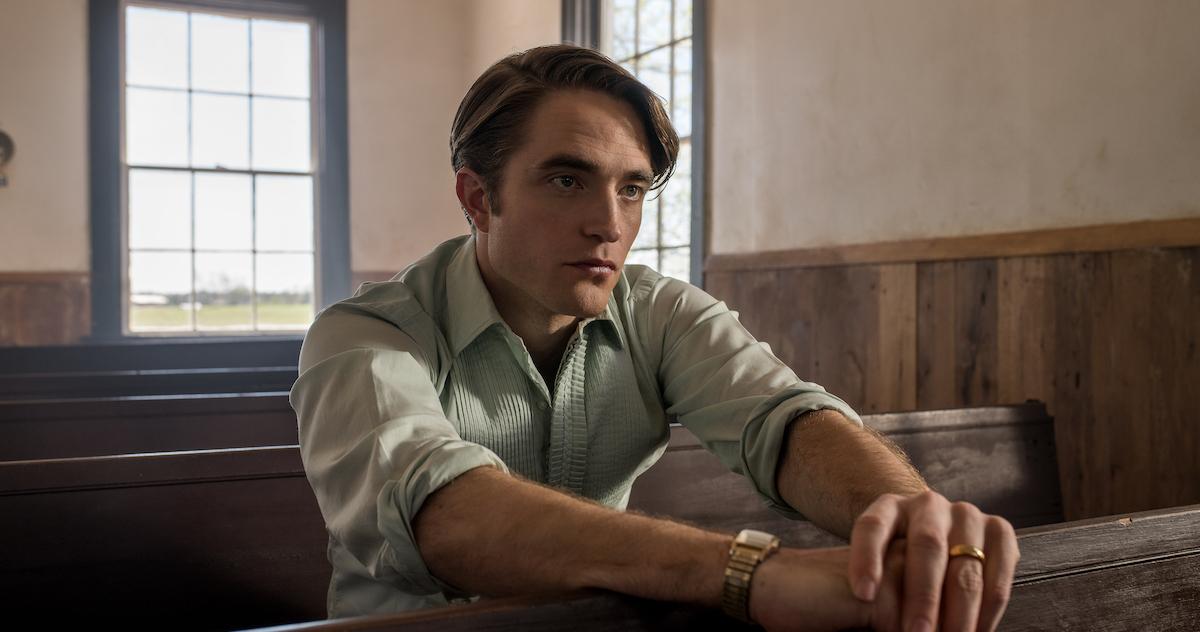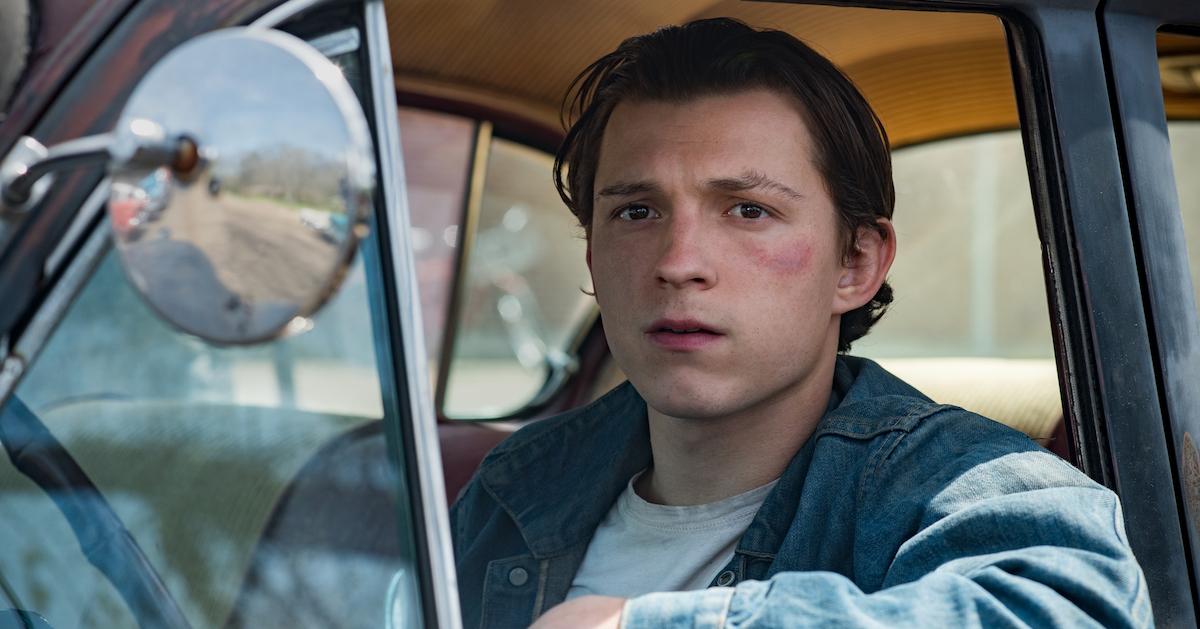What Does the Ending of 'The Devil All the Time' Mean?
Updated Sept. 16 2020, 1:52 p.m. ET

Netflix's latest thriller release is The Devil All the Time, and it certainly isn't for the faint of heart. The gruesome film — which stars the likes of Tom Holland, Robert Pattinson, Riley Keough, and Michael Shannon — is based on the 2011 novel of the same name by Donald Ray Pollock.
The plot centers around Arvin Russell (played by Tom Holland and Michael Banks Repeta), the son of a World War II veteran who is surrounded by tragedy. When those closest to him are affected by bad people, Arvin begins to seek a revenge of sorts as a pseudo-vigilante.
With the shifts in time, the various vignettes of the characters, and the violence, it's no surprise if you found yourself confused by the ending of the film. Continue reading for The Devil All the Time ending explained.

'The Devil All the Time' ending explained — SPOILERS ahead.
The film begins with a murder, so it's only fitting that it ends with one too. Whether Arvin was born to kill or he became a killer because of his circumstances is a debate that could last longer than the 138-minute film, but by the end, he has one final victim: Sheriff Lee Bodecker (Sebastian Stan).
Lee's sister was Sandy Henderson (Riley Keough), who was one half of the murderous couple along with her husband, Carl Henderson (Jason Clarke). Carl and Sandy were also killed by Arvin.
The sheriff chose to get rid of all of the evidence that his sister was a killer, which means that nobody would know that she killed Arvin's stepsister's father (or any of her other victims).
After killing Lee, Arvin hitchhikes and he catches a ride. While sitting in the passenger seat, Arvin hears a radio address from the president that the Vietnam War has begun. The film ends with Arvin considering whether or not to enlist.
But, the events in the film began after Arvin's dad, Willard Russell (Bill Skarsgård) killed a fellow soldier out of mercy during World War II.
The ending is certainly up for interpretation — it's unclear whether enlisting will help Arvin avoid getting caught for his past murders, or if it's meant to comment on war in general.

The director of the film, Antonio Campos, discussed the ambiguity of the conclusion with Inverse.
"We're left wondering, will Arvin be one of those traumatized veterans? Or will he go down another path? Will he get out of this cycle that he's been stuck in that Willard was in before? So the end of the movie is not giving an answer but posing a question and leaving the door open for you to decide."
Is 'The Devil All the Time' based on a true story?
Though the Netflix psychological thriller is based on a book, the story of Arvin and his murderous spree is not based on one particular person (thankfully).
Author Donald Ray Pollock was inspired by real people and experiences when constructing some of the behavior of his characters, but the killers in The Devil All the Time are not inspired directly by real people.
The Devil All the Time is now available to stream on Netflix.